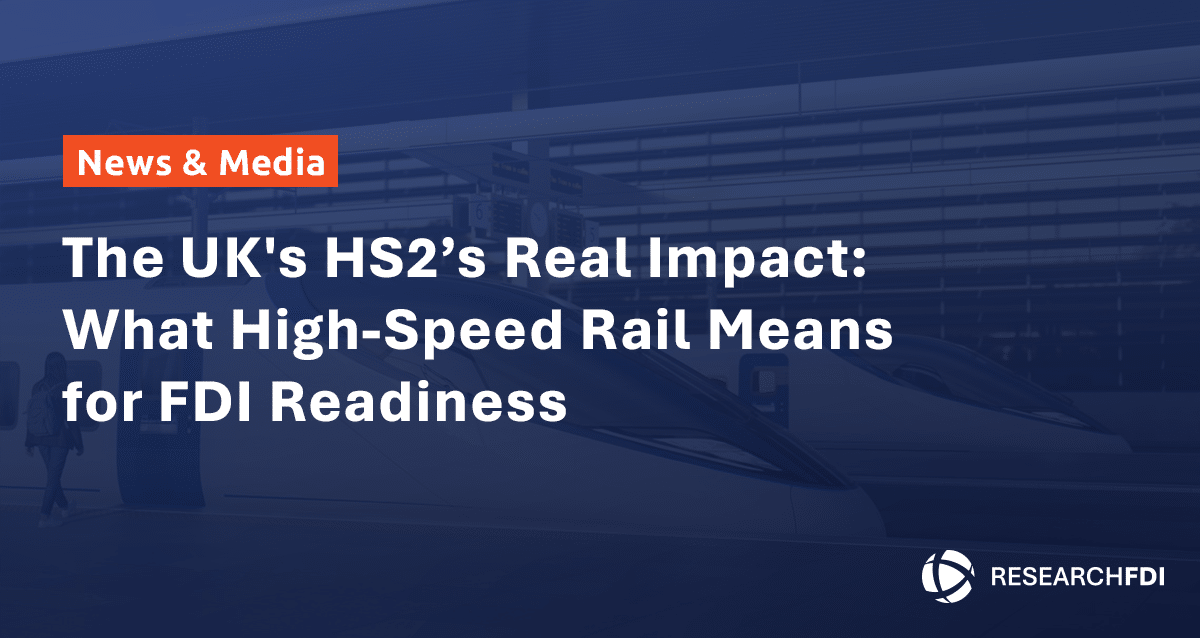While inflation over the past few decades has been fairly tame and inconsequential, its recent increases have been causing concern amongst businesses and investors. The past two years have brought the highest annual inflation rates since the early 1990s, averaging at 3.4% in 2021, and rising to 8.1% in July 2022, heavily exceeding the inflation rate Canada tries to target annually.
Canada is not alone in this; high levels of inflation can be easily felt in major economies across the globe and has many questioning what this means for foreign investors – but how does inflation affect FDI?
What is inflation
Put simply, inflation is the general increase in the price of goods and services over time, which reduces your purchasing power.
The rate at which purchasing power drops can be reflected in the average price increase of a certain amount of selected goods and services over a period. As prices rise, a specific unit of currency, for example one dollar, will not be able to purchase as much as it previously did, causing a loss in consumer purchasing power.
This loss in consumer purchasing power will impact the cost of living for households, which in turn will lead to a deceleration in economic growth.
What causes inflation
While this may seem surprising, not all economists agree on what exactly causes inflation. Despite the debate surrounding the sources of inflation, economists agree that the many proposed sources of inflation can be classified into two broad categories; demand-pull inflation and cost-push inflation.
Demand-pull inflation:
Demand-pull inflation assumes that inflation is based on product demand. This essentially means that as more people have an interest in purchasing a specific product, that product’s demand will increase causing the price to also increase. Furthermore, if a product has a limited supply, consumers will also be willing to pay more, causing the prices of the product to increase.
Cost-push inflation:
Cost-push inflation assumes that inflation is based on product cost. This essentially means that the increasing price of a product is a result of the increasing cost of production. As production costs increase, businesses will increase the product price for consumers to ensure that the product remains as profitable as possible for the business.
While the specific source of inflation is not agreed upon, economics have come to the consensus that sustained inflation occurs when a nation’s money supply growth outpaces economic growth.
How is inflation measured
The rate of inflation is measured by the Consumer Price Index (CPI). The CPI is an indicator of any changes in consumer prices.
This index is obtained by comparing the cost of a fixed amount of goods and services purchased by consumers over a period of time. As the index measures a fixed amount of the same goods and services, it will only reflect the pure price change over time.
An individual CPI can differ from the standard CPI depending on individual consumption patterns.
Effects of inflation
While a small inflation rate can be helpful for an economy, high levels of inflation will impair the economy’s long-term performance.
In general, high levels of inflation are seen as negative, as it will decrease consumer purchasing power. For consumers, high levels of inflation will cause a significant increase in the cost of living. As consumers need to purchase certain goods and services for their everyday needs, the effects of inflation and price increases will be felt heavily. This can result in consumers and businesses purchasing less products than before to keep up with the costs of their needs. When this decrease in purchasing is multiplied across millions of consumer transactions across a nation, the entire economy will feel the effects of inflation and the subsequent decreases in economic activity.
Does inflation affect FDI?
While inflation rates are rising, spooking commodity and equity markets, the impact inflation might have on FDI levels is still uncertain.
In theory, high levels of inflation might cause a downturn in foreign investments, as high levels of inflation can lead to a depreciation of the local currency, risking reductions in the value of assets pegged to the local currency relative to foreign currencies.
The rapid and unpredictable price increases that come with high levels of inflation may also increase friction within the operations of businesses, as businesses will need to frequently update product prices and wage costs.
However, moderate levels of inflation could be beneficial to foreign direct investors. Moderate levels of inflation may help promote domestic growth, leading to reduced values of debts to suppliers and increased levels of competition in exports.
Attempts from experts to identify the effect of inflation on FDI have frequently produced mixed and contradictory results. These differences in results are likely since the effect of inflation on FDI varies with the nature of the host economy and its current level of inflation. While studies have shown coincidences of high inflation and low FDI versus the low inflation and high FDI inflows, there is not conclusive evidence that isolates inflation as the sole variable affecting FDI flows. As inflation will affect the entire economy, as such the relationship between inflation and FDI flows is influenced by other variables.
Low levels of inflation are often signs of economic stability while high levels of inflation can signal uncertainty and economic instability. The economic stability of a host country can be a major factor determining the inflow of foreign investment as economic crises or uncertainty can discourage investment. Economic stability is also often a signal of a country’s political stability, a foreign direct investment has an element of risk, investors will tend to avoid countries with an uncertain political situation, as the high risk is a major disincentive.
As moderate levels of inflation can potentially be attractive and even beneficial for foreign investors, inflation will only pose a risk of reducing FDI when high levels are sustained over a long period of time.
In conclusion
Rising inflation will most likely not have a significant impact on FDI levels.
Rises in inflation, if temporary, are not likely to impact FDI flows. However prolonged periods of rising inflation will result in a decrease of FDI flows due to the impacts high levels of inflation has on other aspects of a country’s economy that influence FDI inflow.
If the current rises in inflation are not temporary, major economies may face a moderate reduction in FDI levels. However, any reductions in FDI levels that come along with rises in inflation should also be weighed against other factors that influence FDI inflows also impacted.
In short, there is not much room for concern at the moment, but perspective foreign investors will most likely be keeping a watchful eye on inflation levels during their investment selection process.
More from ResearchFDI:



